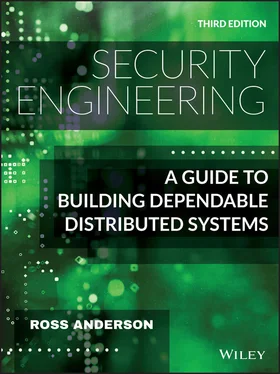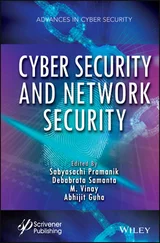Defaults matter in security too, but often they are set by an adversary so as to trip you up. For example, Facebook defaults to fairly open information sharing, and whenever enough people have figured out how to increase their privacy settings, the architecture is changed so you have to opt out all over again. This exploits not just hazardous defaults but also the control paradox – providing the illusion of control causes people to share more information. We like to feel in control; we feel more comfortable driving in our cars than letting someone else fly us in an airplane – even if the latter is an order of magnitude safer. “Privacy control settings give people more rope to hang themselves,” as behavioral economist George Loewenstein puts it. “Facebook has figured this out, so they give you incredibly granular controls.” [1536]
3.2.5.4 The default to intentionality
Behavioral economists follow a long tradition in psychology of seeing the mind as composed of interacting rational and emotional components – ‘heart’ and ‘head’, or ‘affective’ and ‘cognitive’ systems. Studies of developmental biology have shown that, from an early age, we have different mental processing systems for social phenomena (such as recognising parents and siblings) and physical phenomena. Paul Bloom argues that the tension between them explains why many people believe that mind and body are basically different [269]. Children try to explain what they see using physics, but when their understanding falls short, they explain phenomena in terms of intentional action. This has survival value to the young, as it disposes them to get advice from parents or other adults about novel natural phenomena. Bloom suggests that it has an interesting side effect: it predisposes humans to believe that body and soul are different, and thus lays the ground for religious belief. This argument may not overwhelm the faithful (who will retort that Bloom simply stumbled across a mechanism created by the Intelligent Designer to cause us to have faith in Him). But it may have relevance for the security engineer.
First, it goes some way to explaining the fundamental attribution error – people often err by trying to explain things from intentionality rather than from context. Second, attempts to curb phishing by teaching users about the gory design details of the Internet – for example, by telling them to parse URLs in emails that seem to come from a bank – will be of limited value once they get bewildered. If the emotional is programmed to take over whenever the rational runs out, then engaging in a war of technical instruction and counter-instruction with the phishermen is unsound, as they'll be better at it. Safe defaults would be better.
3.2.5.5 The affect heuristic
Nudging people to think in terms of intent rather than of mechanism can exploit the affect heuristic , explored by Paul Slovic and colleagues [1791]. The idea is that while the human brain can handle multiple threads of cognitive processing, our emotions remain resolutely single-threaded, and they are even less good at probability theory than the rational part of our brains. So by making emotion salient, a marketer or a fraudster can try to get you to answer questions using emotion rather than reason, and using heuristics rather than calculation. A common trick is to ask an emotional question (whether ‘How many dates did you have last month?’ or even ‘What do you think of President Trump?’) to make people insensitive to probability.
So it should not surprise anyone that porn websites have been used to install a lot of malware – as have church websites, which are often poorly maintained and easy to hack. Similarly, events that evoke a feeling of dread – from cancer to terrorism – not only scare people more than the naked probabilities justify, but also make those probabilities harder to calculate, and deter people from even making the effort.
Other factors that can reinforce our tendency to explain things by intent include cognitive overload, where the rational part of the brain simply gets tired. Our capacity for self-control is also liable to fatigue, both physical and mental; some mental arithmetic will increase the probability that we'll pick up a chocolate rather than an apple. So a bank that builds a busy website may be able to sell more life insurance, but it's also likely to make its customers more vulnerable to phishing.
3.2.5.6 Cognitive dissonance
Another interesting offshoot of social psychology is cognitive dissonance theory. People are uncomfortable when they hold conflicting views; they seek out information that confirms their existing views of the world and of themselves, and try to reject information that conflicts with their views or might undermine their self-esteem. One practical consequence is that people are remarkably able to persist in wrong courses of action in the face of mounting evidence that things have gone wrong [1866]. Admitting to yourself or to others that you were duped can be painful; hustlers know this and exploit it. A security professional should ‘feel the hustle’ – that is, be alert for a situation in which recently established social cues and expectations place you under pressure to ‘just do’ something about which you'd normally have reservations. That's the time to step back and ask yourself whether you're being had. But training people to perceive this is hard enough, and getting the average person to break the social flow and say ‘stop!’ is hard. There have been some experiments, for example with training health-service staff to not give out health information on the phone, and training people in women's self-defence classes to resist demands for extra personal information. The problem with mainstreaming such training is that the money available for it is orders of magnitude less than the marketing budgets of the firms whose business model is to hustle their customers.
3.2.5.7 The risk thermostat
Some interesting empirical work has been done on how people manage their exposure to risk. John Adams studied mandatory seat belt laws, and established that they don't actually save lives: they just transfer casualties from vehicle occupants to pedestrians and cyclists [20]. Seat belts make drivers feel safer, so they drive faster in order to bring their perceived risk back up to its previous level. He calls this a risk thermostat and the model is borne out in other applications too [19]. The lesson is that testing needs to have ecological validity: you need to evaluate the effect of a proposed intervention in as realistic a setting as possible.
3.3 Deception in practice
This takes us from the theory to the practice. Deception often involves an abuse of the techniques developed by compliance professionals – those people whose job it is to get other people to do things. While a sales executive might dazzle you with an offer of a finance plan for a holiday apartment, a police officer might nudge you by their presence to drive more carefully, a park ranger might tell you to extinguish campfires carefully and not feed the bears, and a corporate lawyer might threaten you into taking down something from your website.
The behavioural economics pioneer and apostle of ‘nudge’, Dick Thaler, refers to the selfish use of behavioural economics as ‘sludge’ [1878]. But it's odd that economists ever thought that the altruistic use of such techniques would ever be more common than the selfish ones. Not only do marketers push the most profitable option rather than the best value, but they use every other available trick too. Stanford's Persuasive Technology Lab has been at the forefront of developing techniques to keep people addicted to their screens, and one of their alumni, ex-Googler Tristan Harris, has become a vocal critic. Sometimes dubbed ‘Silicon valley's conscience’, he explains how tech earns its money by manipulating not just defaults but choices, and asks how this can be done ethically [868]. Phones and other screens present menus and thus control choices, but there's more to it than that. Two techniques that screens have made mainstream are the casino's technique of using intermittent variable rewards to create addiction (we check our phones 150 times a day to see if someone has rewarded us with attention) and bottomless message feeds (to keep us consuming even when we aren't hungry any more). But there are many older techniques that predate computers.
Читать дальше











